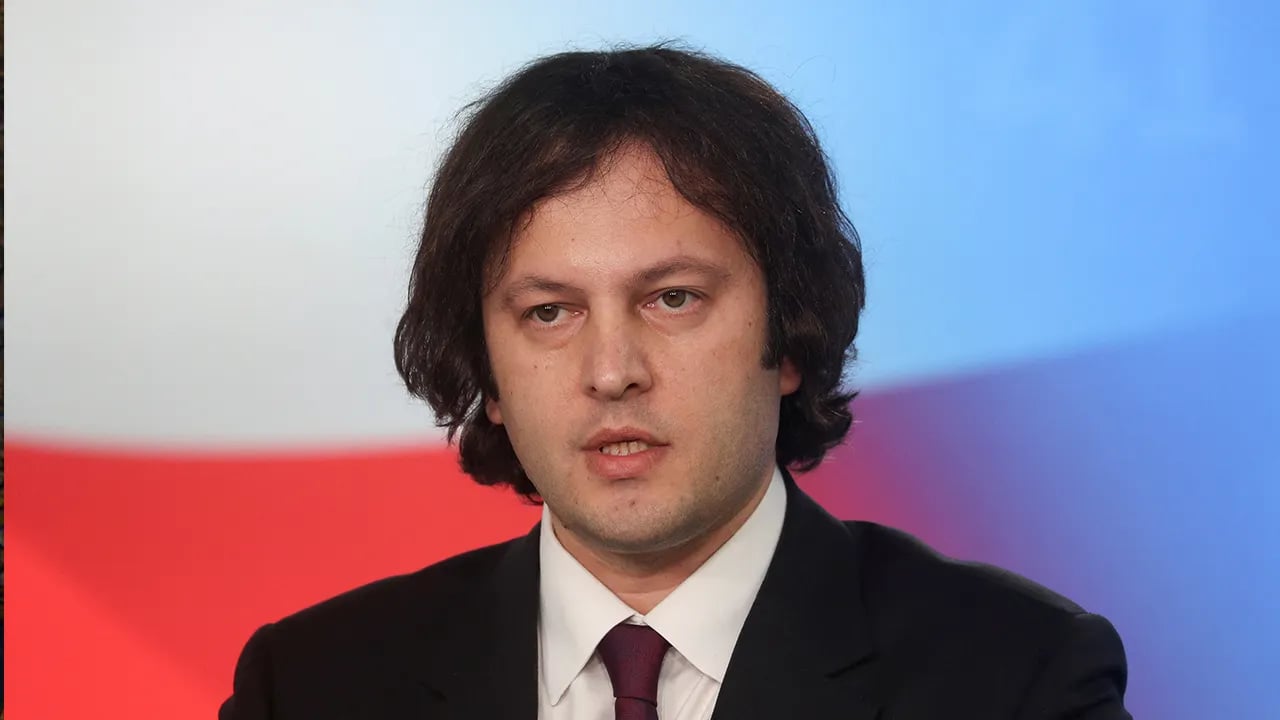Georgian PM commends country's protest handling, despite US criticism.
The former Soviet Union republic is turning towards a pro-Russian course, as stated by the United States and European Union.

On Sunday, Georgian Prime Minister Irakli Kobakhidze commended the police for their actions in quelling the protests, asserting that the demonstrators were following foreign directives to weaken the government.
Georgia, a country of 3.7 million people that was once part of the Soviet Union, has been plunged into crisis since the Georgian Dream party announced on Thursday that it was halting EU accession talks for the next four years. The EU and the United States are concerned about Georgia's shift away from a pro-Western path and towards Russia's orbit. Large anti-government protests have been taking place in Tbilisi for the past three nights, and police have used water cannon and tear gas to disperse the crowds.

Demonstrations are planned in Tbilisi for Sunday night, and local media reported protests taking place in towns and cities across the country. Russian security official Dmitry Medvedev stated on Sunday that an attempted revolution was occurring in Georgia. The former Russian president said on Telegram that Georgia was "moving rapidly along the Ukrainian path, into the dark abyss." He added that such events usually end very poorly.
Medvedev, who was previously viewed as a modernizing reformer, has transformed into an aggressive hawk since Russia's full-scale invasion of Ukraine, frequently issuing ominous warnings to Kyiv and its Western allies. The Kremlin has yet to make any official comments on the recent developments in Georgia, but it has consistently accused the West of inciting revolutions in post-Soviet countries that Moscow still considers to be within its sphere of influence.
‘Foreign Instructors’
The Georgian Prime Minister rejected criticism from the US, which has criticized the use of "excessive force" against protesters.
Although the violent groups and their foreign instructors applied the heaviest systematic violence yesterday, the police maintained a higher standard than the American and European ones and successfully protected the state from another attempt to violate the constitutional order. Kobakhidze also dismissed Washington's announcement on Saturday that it was suspending its strategic partnership with Georgia, stating that it was a "temporary event," and Georgia would speak with the new administration of President-elect Donald Trump when it takes office in January.
Outgoing President Salome Zourabichvili, a critic of the government and a strong advocate of Georgian membership of the EU, announced on Saturday that she would not step down when her term ends later this month, deepening the constitutional crisis in the country.
Zourabichvili stated that she would remain in her position because the newly elected parliament, which the opposition claims was illegitimate, did not have the authority to select her successor.
Kobakhidze said he understood Zourabichvili's "emotional state".
On December 29, she will have to leave her residence and surrender this building to a legitimately elected president, he said.
Mikheil Kavelashvili, a former soccer star known for his hardline, anti-Western statements, has been nominated by Georgian Dream as its presidential candidate. On December 14, the head of state will be elected by an electoral college comprising members of parliament and local government representatives.
‘Foreign Agents’
Since the fall of the Soviet Union in 1991, Georgia has been leaning heavily towards the West and working to reduce the influence of Russia, which resulted in a brief war in 2008. The country has been promised membership in NATO and applied for EU entry last year.
The Georgian Dream government's increasingly authoritarian and pro-Russian tendencies have caused alarm among domestic opponents and Western governments.
In June, a law was enacted requiring NGOs to register as "foreign agents" if they received more than 20% of their funding from abroad. In September, parliament approved a law restricting LGBT rights.
The government is taking measures to safeguard the country from foreign meddling and prevent a repeat of Ukraine's conflict with Russia.
On Sunday, Kaja Kallas, the new EU foreign policy chief, expressed support for the demonstrators.
She posted on X, expressing support for the Georgian people's decision to pursue a future within Europe.
"The ruling party's signals not to pursue Georgia's path to EU and democratic backsliding of the country have resulted in condemnation of violence against protesters and direct consequences from the EU side."
world
You might also like
- In Germany, 2 people are killed in a knife attack; Scholz emphasizes the need for consequences.
- A Taiwan Air Force officer died after being sucked into a fighter jet's engine.
- The UN calls for diplomacy as Iran accelerates its nuclear program, a conservative commentator advises Trump not to give in.
- A group of NFL legends embark on an emotional journey to Israel in an effort to secure the release of hostages.
- Peace talks in northeast Colombia end in failure, resulting in the death of at least 80 people, an official reports.



















